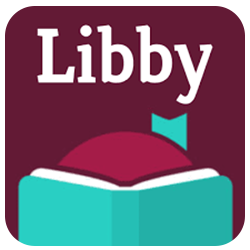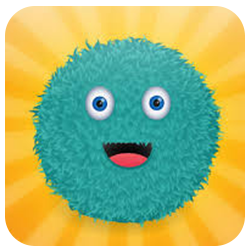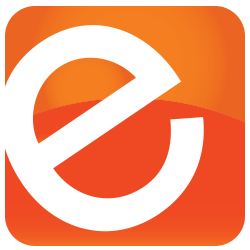
When it comes to tech tools for homeschooling, educational apps are probably the most ubiquitous and also the most popular for homeschooling parents.
Some of the best homeschooling apps speak to the needs of the homeschool parent by providing support for time management or lesson planning. Other homeschool apps offer fun ways for families to teach their homeschool curriculum to students of any age.
Whether it’s helpful resources for older kids or fun videos for younger kids, children of all ages love homeschool apps and technology in general. In fact, kids love to use computers and mobile devices so much that it can sometimes be difficult to tear them away from the screen. For homeschooling parents dealing with this issue, there’s great news: educational apps provide a fun way to harness that force for good by integrating technology into the learning process.
Not every homeschool app is created equal, however. Some apps provide little value to the classroom, while others make homeschooling a breeze. Homeschool families will want to evaluate each app critically so they can decide how best to use it (or not).
The Importance of Planning and Organization in Homeschooling
Unlike traditional education, homeschooling gives parents plenty of freedom and independence, but it can also present a challenge when it comes to structuring the homeschool curriculum. The best homeschool apps help educators overcome this challenge and others.
Home educators will often find that technology can make homeschooling easier, especially when it comes to lesson preparation, time tracking, and evaluating a child’s progress. They may also discover that fun homeschool apps help ease the intensity of the homeschool day by teaching students new words or elevating their reading IQ in the comfort of their bedroom or other safe space.
Planning and organizing the day is always a top priority for any homeschooling parent, but it can be challenging to keep coming up with ideas that will help kids achieve their academic goals. The best homeschool apps will help you overcome these challenges, meet educational benchmarks, and provide engaging activities for the whole family.
Features to Look for in the Best Homeschooling Apps
If you scroll through the Apple App Store or the Google Play Store, you will notice dozens of apps for just about every academic (and non-academic) purpose. There is an app for note-taking, photo editing, messaging, reading, and more.
While every app varies in quality, how useful it is to you and your goals should always be the most important consideration. This is no different when it comes to homeschool apps.
The best homeschool apps are:
- User Friendly. The best homeschool apps boast intuitive interfaces, making them easily navigable by students and educators. This ensures a smooth, frustration-free learning experience for all ages.
- Adaptable. Kids’ ages typically dictate whether a specific homeschool app will be engaging, which often makes a difference when it comes to helping them academically. Some of the best homeschool apps scale with a student’s proficiency and grow with them as they mature.
- Customizable. The best apps offer personalization for kids and/or allow parents and educators to tailor the learning experience to meet the individual needs of their students. The ideal app provides both.
Homeschooling is never a one-size-fits-all endeavor, which means the technology you use shouldn’t be either.
Four Tips for Effectively Using Homeschooling Apps
There is an art to using apps correctly. Because they are not designed with your specific needs in mind, getting them to work for your particular circumstances can sometimes be a challenge.
Here are four tips to keep in mind when using homeschool apps.
1) Explore the App before Recommending It to Students
Check out the app to gauge whether it’s age-appropriate, engaging, and aligned with student objectives. Also, review the app’s settings and options; they often include niche features that may augment your teaching methods.
2) Periodically Evaluate Students’ Engagement with the App
This can be as easy as simply asking your students if they enjoy using the app. Ask open-ended questions like, “What do you like about the app?” or “Is the app helping you with your schoolwork?” If they have a strong preference one way or another, that information can help guide your search for other apps in the future.
3) Consider the Utility of the App and Its Alternative Uses
There’s no reason why an app can’t be used for reasons other than its intended purpose. For example, a note-taking app can be used for more than just notes; it can be used to write lesson plans or for students to complete assignments.
4) Prioritize Internet Safety
Check out the app’s reviews and do an internet search for any red flags. Young students should not use apps to communicate with strangers even if they tell you those strangers are other children. Turn off app tracking and periodically monitor your child’s activity on the app to ensure they’re using the app safely and for the reasons you intended.
Top Homeschooling Apps
Navigating homeschooling requires exceptional planning and organization, and the right apps can make all the difference. Here are several recommendations for homeschooling apps that can assist you day-to-day.
Planboard: Lesson Planning for Teachers
Planboard is a free app for creating, editing, and sharing lesson plans. It helps you organize plans by timetable and subject and even lets you insert pictures and files into your plans.

Evernote: Note Taking, To-do Lists, and Planning
Evernote is one of the most popular free note-taking apps, but it can do much more than jot down your thoughts. It can clip web pages, incorporate content like PDFs and audio, connect to Google Calendar, and sync information to different notebooks.

Duolingo: Bite-sized Language Learning
Duolingo is probably the most famous language-learning app. It offers everything from French and Spanish to Chinese and Arabic. It’s completely kid-friendly and a great way for young children to get their first glimpse of a new language. Duolingo’s lessons are short and compact, meaning they are good for filling up brief stretches of time in between activities or during car rides.

Perlego: Your University Library
Ever feel like your home library just isn’t enough for your students? Perlego is a subscription-based university library service that offers instant access to millions of textbooks and academic books for as little as $12 a month. Its content is geared mostly towards high school or older, but you can find some content for younger students as well.

Libby, by OverDrive: Library Audiobooks and Ebooks
Libby is a free app that allows users with library cards to enjoy ebooks, digital audiobooks, and magazines from their local public libraries. Titles can be streamed over Wi-Fi or mobile data or can be downloaded for offline use so they can be read anytime, anywhere. As long as your library has it, Libby has it.

Star Walk 2: The Sky is Closer Than You Think
Star Walk 2 allows users to see stars, planets, and constellations through an interactive, augmented reality sky map on the screen of their phones. It also features 3D models, cross-sections, and overviews of most astronomical bodies in our solar system. Users can also search for man-made satellites, distant star clusters, interstellar nebulae, astronomical events, and more.

Kodable: An Introduction to Computer Science
Kodable is a subscription-based children’s programming course that teaches Javascript. It is suitable for students as young as Kindergarten and can teach them concepts like syntax, strings, arrays, classes, properties, and methods. Computer programming is quickly becoming a required skill for many jobs. Fortunately, even young children are able to pick up on the basics, and they can use these skills for the rest of their lives.

Khan Academy Kids: Online Courses
Khan Academy is a famous online course website that offers comprehensive digital course materials for math, science, reading, economics, and more. Their kid’s version is free, includes no ads, and offers personalized learning paths through multiple courses for your students. It is designed for students ages 2 to 8.

Demme Learning’s Digital Toolbox
The Digital Toolbox offers online access to a variety of Math-U-See resources, including free access to our Virtual Manipulatives for on-the-go learning and supplemental content aligned with your child’s level. Even non-Demme Learning users can explore free content, such as the first three lessons of instructional materials (videos and PDFs) for each Math-U-See level. Families who have purchased Online Instruction with Video gain access to every lesson in their purchased level, making it easy to find and use what they need for consistent instruction.
To make these tools even easier to access and use, our new Early Access experience offers the same trusted resources and content in a refreshed platform with improved navigation, a cleaner design, and better mobile usability. You’ll still have the option to use the original Digital Toolbox, but we invite you to explore the updated version and share your feedback as we continue to improve the experience.

Finding the Best Homeschool Apps
No list could possibly contain all the best educational apps for your classroom, and ours is no exception. There are many possibilities, and new products are introduced daily.
The apps mentioned above should serve as a good start, but you should also browse the app store to find tools that work for you and your students. Here are some tips to help your search:
Narrow Your Search by Category
The Apple App Store and the Google Play Store divide apps by categories like education or productivity. Most apps your students use will fall under education, but you may also find useful tools in categories for productivity or even business.
Read Reviews and Check Ratings
Reviews can help evaluate the pros and cons of any app, but they can be particularly helpful for parents looking for organizational and planning tools or a student-oriented homeschool app. Look for 4+ star ratings and be sure to pay attention to any potential red flags.
Take Advantage of Free Trials
Don’t be afraid to use free trial offers to gauge the value or effectiveness of subscription-based apps. Sometimes the only way to really get to know whether an app will help is to use all of its features. If you decide against an app after using the free trial, however, don’t forget to cancel your subscription before the trial period ends and your payment is processed.
Understand How the App Generates Revenue
Once you find an app you like, make sure to determine if it is ad-supported, subscription-based, or charges a one-time fee. If an app is ad-free while also being free to download, it probably requires in-app purchases to achieve full functionality.
Planning to expand your use of technology in the classroom? Create a Free Digital Toolbox Account Today!




I didn’t read your article to the end. I’m sure planning apps are good for the nail parent. However, it’s just gonna keep them on the phone that much longer and away from their child. Phones are way too addicting, and they rob too much of our time we should be spending with the child. Take this from someone who spent way too much time on the phone.